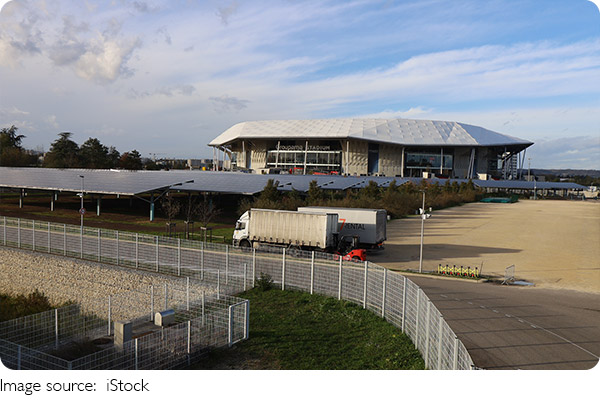Olympics Through Ages

Hey there, fellow sports enthusiasts! Have you ever wondered how the Olympic Games evolved from a small ancient Greek festival into the global spectacle we know today?
In this article, we're diving into the rich history of the Olympics, tracing its journey from its humble beginnings to its present-day status as a celebration of human athleticism, unity, and global cooperation.
The Birth of the Olympic Games: Ancient Greece
The Olympic Games were born in Olympia, Greece, around 776 BC. This was long before TV broadcasts, corporate sponsorships, and the massive global audience we have today. Back then, the Olympics were part of spiritual festivals dedicated to Zeus, the king of the Greek gods. Only free Greek men could participate, and the events were a way to celebrate the gods and demonstrate physical prowess. The first Olympics featured just one event: a foot race called the "stade," which was 192 meters long (about the length of the modern 200-meter race).
The Evolution: From Ancient Rituals to Competitive Sports
Over the centuries, the Olympic Games grew in size and complexity. By the 5th century BC, the Olympics expanded to include events like wrestling, boxing, and chariot racing. Women, however, were excluded from competing and attending the Games. The competition took place every four years, and the athletes competed in the bare, reflecting the Greek ideal of the human body. The Olympics became not just a showcase of athleticism, but a symbol of Greek culture and pride.
However, by 393 AD, the Roman Emperor Theodosius I banned the Games, associating them with paganism. The Olympic tradition went into a long hiatus, and for over a thousand years, the Games were forgotten.
Resurrection of the Olympics: A Modern Revival
Fast forward to the 19th century when a French educator named Pierre de Coubertin had a vision: to revive the Olympic Games as a way to promote international peace and friendship. In 1896, the first modern Olympic Games were held in Athens, Greece, with 13 nations participating. The Games featured 43 events across 9 sports, with a focus on the values of fair competition, global unity, and the celebration of human potential.
The modern Olympics grew quickly, with more countries joining in and new events being added over the years. The first female Olympians competed in 1900, and by 1924, the Winter Olympics were introduced, showcasing winter sports like skiing and ice hockey.
Global Phenomenon: The Olympics Today
Today, the Olympic Games are a massive global event that brings together athletes from every corner of the world. The Games are broadcast in nearly every country, watched by billions of people, and feature athletes competing in over 30 sports, ranging from athletics to gymnastics, swimming to skateboarding.
The modern Olympics not only celebrate athletic excellence but also focus on promoting peace, respect, and mutual understanding among nations. In fact, the International Olympic Committee (IOC) has worked hard to ensure that the Games are inclusive, with gender equality being a major goal. Women now participate in almost every event, and the Olympics have become a platform for highlighting important global issues such as climate change and human rights.

The Olympics: A Celebration of Human Achievement
So, why are the Olympics so important to us? The Olympics transcend sports. They remind us of the incredible potential of human beings and our ability to push the limits of physical and mental endurance. Whether you're watching a sprint race, diving competition, or a thrilling basketball match, the Olympics provide a platform for athletes to showcase their skills on the world stage.
Furthermore, the Games promote values that we can all relate to: perseverance, dedication, and teamwork. The Olympics are a global celebration of diversity, where cultures come together, differences are set aside, and everyone is united by their love of sports.
Conclusion: The Olympic Legacy
From its ancient Greek roots to its modern-day grandeur, the Olympics have evolved into one of the world's most powerful symbols of unity, achievement, and hope. It's more than just a sporting event—it's a reflection of the best of humanity. And as we continue to cheer on athletes from around the globe, we celebrate not just their victories, but the shared values that make the Olympics such a special part of our lives.
What's your favorite Olympic memory? Share it with us in the comments below!
-
 Car Interior CleaningSmelly Car? Here’s How We Can Easily Remove Bad Odors and Kill Bacteria to Keep Our Car Fresh and Healthy!
Car Interior CleaningSmelly Car? Here’s How We Can Easily Remove Bad Odors and Kill Bacteria to Keep Our Car Fresh and Healthy! -
 Car Paint CareScratches, Fading, and Stains? Here’s How to Make Your Car’s Paint Look Brand New Again—Without Repainting It!
Car Paint CareScratches, Fading, and Stains? Here’s How to Make Your Car’s Paint Look Brand New Again—Without Repainting It! -
 What Massage Do You Need?Discover The Perfect Massage For Stress Relief, Flexibility, And Total Rejuvenation!
What Massage Do You Need?Discover The Perfect Massage For Stress Relief, Flexibility, And Total Rejuvenation!